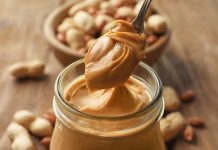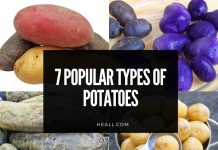A range of studies carried out over the last decade make it clear that casein does increase cancer growth in people.
Does casein promote cancer? Could the most common protein found in cheese and milk promote cancer growth in people? A range of studies carried out over the last decade make it clear that casein does increase cancer growth in people. Yet these facts have gained little public attention because they run counter to advertising campaigns and long held beliefs about dairy products.
The facts are startling and important for anyone wanting to live a healthy life and avoid cancer which is epidemic in its many forms. Cancer is the leading killer in the world with around 12 million new cases per year worldwide.
For some the idea that we can control disease with nutrition is a radical idea. In fact diet and disease are tightly linked and the American style diet, heavily centered around meat and cheese has serious implications for public health.
Table of Contents
What is Casein?
Casein is a protein found in dairy products from cows or goats and in human milk and it is used by some people as a protein supplement for body building. 85% of milk protein is casein and the substance is widely found in yogurt and cheese. Casein tends to form little clots in our digestive tracts which break down slowly since it is not water soluable.
The Cancer Connection
Researchers in India, China and the US have found that protein intake can promote cancer growth. Casein encourages cancer growth and the pre-cancer cell clusters called foci which are found in many people’s bodies. Casein is not a carcinogen, which is a substances that causes the onset of cancer by damaging our DNA. Rather it is like a fertilizer for cancer or pre cancerous foci cells.
Dr. T. Colin Campbell at Cornell University was the first person to bring this reality to the attention of the medical and nutrition community in the United States. His book “The China Study” goes into great detail explaining the science behind casein and cancer (and the links between animal proteins and other diseases). His is not a theory or new-age principal. It is a set of scientifically proven facts and in his book and professional publications, he and others detail their methods and results.
First, researchers noticed that people only need about 10% protein in their diets. Any more than that amount and we see that pre-cancer cells (foci) are stimulated to grow. Thus when people eat too much protein, they greatly risk increasing their vulnerability to cancer. Many Americans eat vastly more than 10% protein diets since meat is so popular in the US.
Are all proteins the same in promoting foci and cancer? Dr. Campbell and his colleagues studied the effects of casein versus plant proteins such as those found in soy or wheat. What they found was startlingly clear. Plant proteins do not promote foci or cancer growth, even when consumed in very large quantities. However, casein has a dramatic affect on foci or cancer cells. The Cornell researchers found that casein turns cancer on and off. If you consume even moderate amounts of milk and cheese you will promote any cancer cells that may be latent in your body. If you stop eating casein containing products, the growth of foci or cancer growth slows or stops.
These findings were checked and rechecked with big studies using rats but they have also been verified by the largest nutritional studies ever conducted in China. There many rural people eat little or no animal products, either meat or dairy products. They rely instead on plant diets based on rice, vegetables and fruits. In those rural populations, cancer is almost unknown. Yet in China’s urban areas where meat and cheese diets have become popular, cancer rates are like those found in the United States.
Protecting Yourself
The implications of these studies are very clear. If you fear cancer, if you have cancer, or if you want to avoid cancer, dairy products should be consumed very sparingly. Use cheese as a small condiment and not every day. Stop drinking milk (there are many other reasons to avoid milk as well) and replace it with soy milk, hemp milk or rice milk available in almost any grocery store today. (You can get more calcium from vegetables than from milk).



